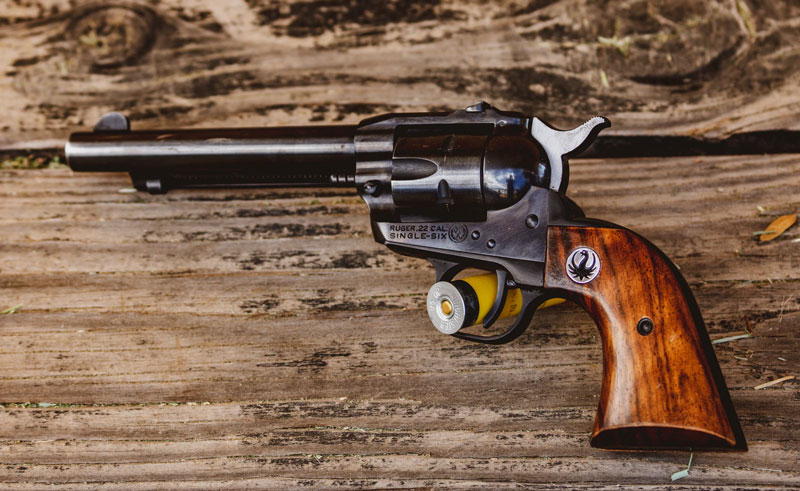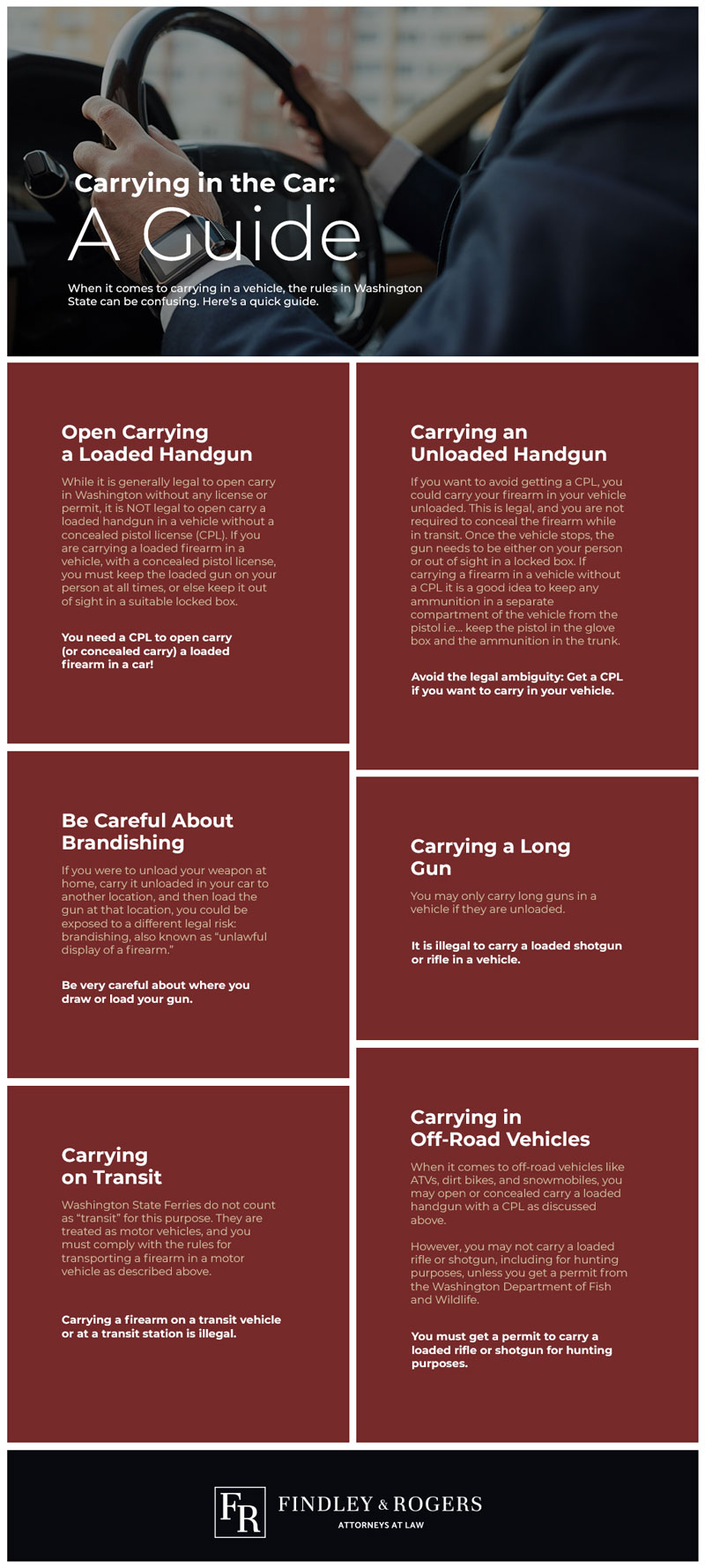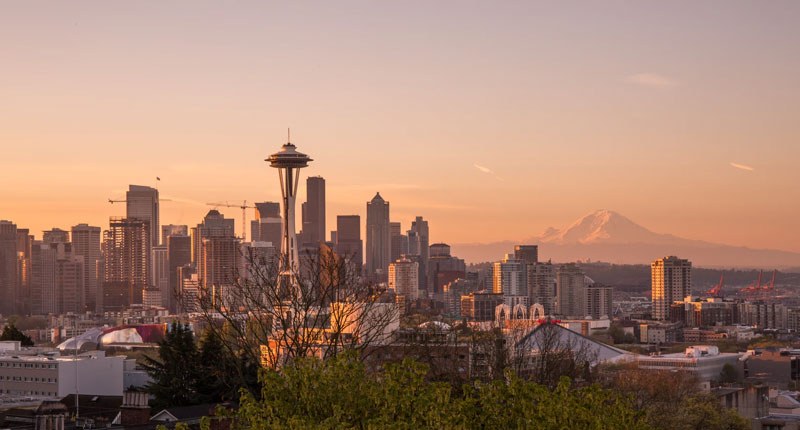Washington State Concealed Carry Laws & Open Carry Laws: What You Need to Know
Many of our clients ask about Washington State’s concealed carry laws. As responsible gun owners, they want to make sure they are following the law which is especially important in today’s charged climate surrounding the topic of gun violence.
Overall, Washington State is fairly permissive when it comes to gun rights. The Washington State Constitution enshrines the right to bear arms (Section 24), and, as part of the rugged Pacific Northwest, Washington has always had a strong tradition of the right of self-defense. In particular, Washington State’s open carry laws allow open carry without a firearm permit.
In spite of the generally permissive atmosphere for gun owners, Washington State’s concealed carry laws do have numerous restrictions, both at the state and local levels. Here is a closer look at what you need to know about concealed carry in Washington.
Washington State Concealed Carry Laws: An Introduction
Here are some basic facts about concealed carry in Washington:
- With some exceptions, pistols and semi-automatic rifles may only be possessed and carried by people aged 21 and over who have not lost their right to possess a firearm (such as by a felony conviction) and have not undergone gun rights restoration.
- Washington State’s concealed carry laws only allow for the licensure of handguns. Other firearms are not covered by the state’s concealed pistol license.
- The Washington Concealed Pistol License allows you to concealed carry a loaded pistol on your person in your vehicle. Without a license, you must keep the firearm unloaded and out of view.
- You may concealed carry in your home or fixed-location business, which you control, at any time without a license..
Washington State Concealed Carry Laws: “Shall Issue”
Washington is a “shall issue” state meaning that as long as you meet the legal requirements for obtaining a concealed pistol license and pass the background check, law enforcement is required to grant you the license. There are no training requirements, and law enforcement has no authority to turn you down on its own discretion.
If you do encounter problems with Washington State’s open carry laws or getting your concealed pistol license in Washington State, our Washington gun lawyers here at Findley & Rogers is ready to help you.
Preemption Laws
Washington State’s concealed carry laws are mainly governed at the state level, as Washington has a preemption law that limits the authority to regulate firearms mostly to the state.
Cities and counties have very limited authority and may only limit the possession of firearms in convention centers and stadiums. They also have the right to limit the actual discharge of firearms in situations where there is a reasonable likelihood that people, pets, or property will be threatened.
What Other Restrictions Can Cities & Counties Impose?
Because of Washington State’s preemption laws, cities and counties have very little leeway to restrict the possession of firearms. Here are a few of the more common exceptions:
- Despite Washington State’s open carry laws and concealed carry laws, public employers may restrict an employee’s possession of a lawful firearm while at their workplace.
- Firearms must be safely stored when not being carried to prevent children or individuals that you know are not allowed to have firearms from gaining access to them.
- Local governments are allowed to use their zoning authority to limit where firearms may be sold.
- Local governments are also allowed to tax the sale of firearms and ammunition.
Constitutional Carry
“Constitutional carry” allows for carrying a firearm without a permit. Washington State’s concealed carry laws do not allow this.
Washington State Open Carry Laws
While Washington State’s concealed carry laws have significant limitations, Washington has no laws that directly stop a person from openly carrying a firearm. That means open carry is legal for anyone 21 or older who has not lost their right to possess a firearm (such as by a felony conviction). No open carry permit is required.
Instead, the applicable law focuses on specific instances when it is unlawful to carry. This law is mostly common sense and essentially means that you can’t open carry in a way that intimidates or harasses other people. You also can’t open carry in most government buildings like public schools, courthouses, and jails. Private businesses and landowners can also prohibit the open carry of firearms on their premises, and many do.
Additionally, Washington State’s open carry laws allow open carry in your own home or fixed-location business, as well as in situations of self-defense or subduing a person who is committing a felony (such as in an active shooter situation). Note that this applies to openly carrying your gun, not necessarily discharging it.



